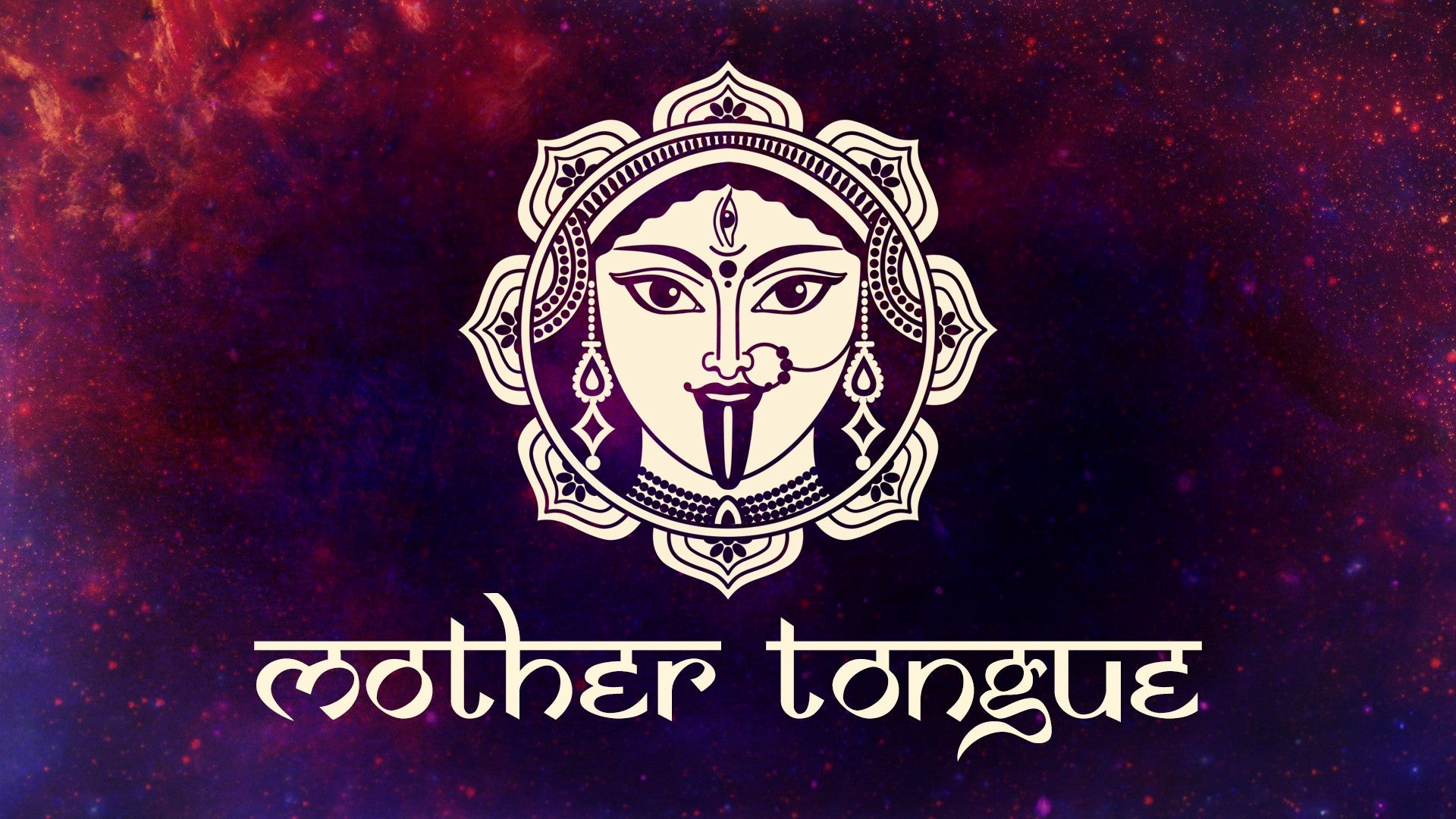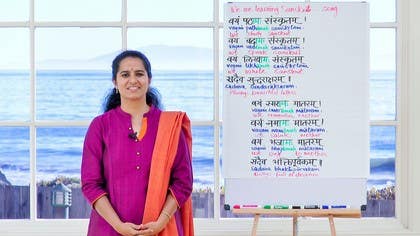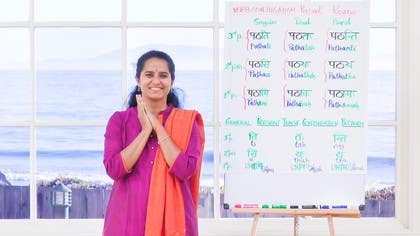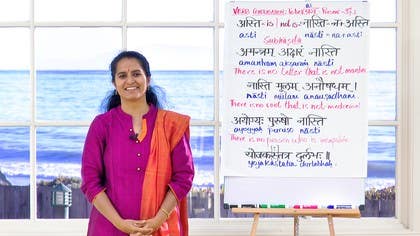Description
About This Video
Transcript
Read Full Transcript
We are having some fun with singing in Sanskrit using the conjugations in the first person. We did it with I. So, ahampatami sanskritam. Remember that? Practice that. The tune must be coming now. So, we look at the same song but now using the we, the plural of the first person. So, vayyampatamasanskritam. This is a little forced because the original song is meant for the I and I've just converted with the happily used it for the plural as well. Let's sing it. You repeat it after me. I'll give you the meaning as we did in the previous song. Vayyampatamasanskritam. Very nice. So, we vayyamyam. Remember that? We study Sanskrit. It really is so much fun to study it together. Then vayyamvadamasanskritam. Very nice. So, we speak Sanskrit or we are speaking Sanskrit. That's even better. Vayyamlikamasanskritam. Very nice. So, we write or are writing Sanskrit. Sadaiva always. This is an Indian dance very often means always. That's the action. So, Sadaiva Sundaraksharam with very beautiful letters. Always beautiful letters. Now, vayyam smara mahmataram. We remember mother. Vayyam namah mahmataram. We salute mother. Vayyam namah mahmataram. Vayyam namah mahmataram.
Vayyam bhajam mahmataram. Very nice. So, we sing mother to mother. Sadaiva always. Bhaktipurva come full of devotion. Come. Yeah, that's it. Always full of devotion. And that I must admit that I'm cheating a little bit here. Cheating in terms to just make it very clear to you. Alright, because normally when a smara maha is followed by the sound mha, it would tend to become oh smara moh mahmataram. I have to be like very very grammatically correct. But when we are separating the words and keeping them apart, it's perfectly right to say it as smara maha. So, just so you hear the sound correctly. Alright, so let's practice it. I'll say it once and you follow after me and we do it with actions. Right? Ready to go. Vayyam bhajam mahsan skritam. Vayyam vadam mahsan skritam. Vayyam bhajam mahsan skritam. Vayyam bhajam mahsan skritam. Vayyam bhajam mahsan skritam. Vayyam bhajam mahsan skritam. Vayyam bhajam mahsan skritam. Vayyam bhajam mahsan skritam.
Very nice. The thing is when you're learning this song or any other song that we are doing or I ask you to repeat after me, allow yourself to do it. Become like a child. Sanskrit comes fastest when the consciousness starts opening up, when it lets go of its resistances, its conditionings. When you can allow that to happen to your being, you will see how soon or how quickly Sanskrit gets absorbed. The logic of Sanskrit will trickle and get absorbed into your being. Alright, so play along. Become a child as you do this. Yeah? So we'll do it once more where I sing it and you repeat. Let go and just enjoy. Yeah? So vayyam bhajam mahsan skritam. Vayyam bhajam mahsan skritam. Vayyam lika mahsan skritam. Sadeva sunda raksha ram. Vayyam smara mahmatara ram. Vayyam nama mahmatara ram. Vayyam bhajam mahmatara ram. Sadeva bhakti purvakam. Very nice and our last time we'll do it both together. Yeah? You're ready? Let's start. Vayyam bhata mahsan skritam. Vayyam vadama mahsan skritam. Vayyam lika mahsan skritam. Sadeva sunda raksha ram. Vayyam smara mahmatara ram. Vayyam nama mahmatara ram. Vayyam bhajam mahmatara ram.
Sadeva bhakti purvakam. That was beautiful. Thank you for joining along. See you in another session soon. Namaste.
Mother Tongue: Verbs
Comments
You need to be a subscriber to post a comment.
Please Log In or Create an Account to start your free trial.









